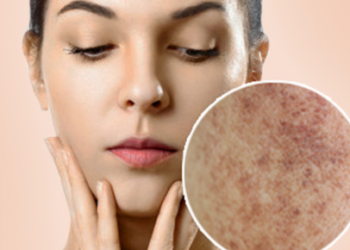
Our skin is a complex organ. It’s our first line of defense against the world. It’s also where we first notice allergic reactions. A dermatologist plays a crucial role in addressing these reactions, diagnosing them, and guiding us towards healing. And it’s not just about rashes or hives. Dermatologists also deal with issues like the aftermath of a New York hair transplant. Let’s delve into this topic further.
Allergic Reactions: A Quick Overview
An allergic reaction occurs when your body responds to a foreign substance. This could be pollen, bee venom, or a certain food. Your body sees them as threats. It responds with a fight. This clash is an allergic reaction.
The Role of Skin in Allergic Reactions
Our skin acts like a shield. It protects our insides from harmful substances. But sometimes, it fails. The enemy gets through. This leads to an allergic reaction.
Common skin allergic reactions include hives, eczema, and contact dermatitis. Hives are red, itchy welts. Eczema causes red, itchy, and scaly skin. Contact dermatitis leads to a red, itchy rash caused by direct contact with a substance.
The Dermatologist’s Role
Dermatologists are doctors who specialize in skin health. They treat over 3,000 skin conditions. These include acne, psoriasis, and skin cancer.
For allergic reactions, dermatologists diagnose the problem. They may perform skin tests. They prescribe medications. They guide you toward healing. They play a pivotal role in managing your skin health.
They also help with other skin-related matters. One of these is the care after a ‘New York hair transplant’. They guide you in ensuring your skin heals properly. They make sure you get the best possible results.
Comparison: Dermatologist vs Allergist
Sometimes, an allergist is also involved in managing allergic reactions. Here’s a quick comparison:
| Dermatologist | Allergist | |
| Focus | Skin health, including allergic reactions on the skin. | Allergies in general, including food allergies, asthma, etc. |
| Tests | May perform skin tests to identify allergens. | May perform skin tests, blood tests, and other tests to identify allergens. |
| Treatments | Prescribes creams, lotions, and other topical treatments. May also suggest oral medications. | Suggests avoidance of allergens, prescribes medications and may suggest immunotherapy. |
Conclusion
In conclusion, dermatologists are important in managing allergic reactions on the skin. They provide the necessary expertise to diagnose, treat, and manage these conditions. They are crucial for maintaining our overall skin health. So, whether it’s an allergic reaction or post-New york hair transplant’ care, trust your skin with a dermatologist.












